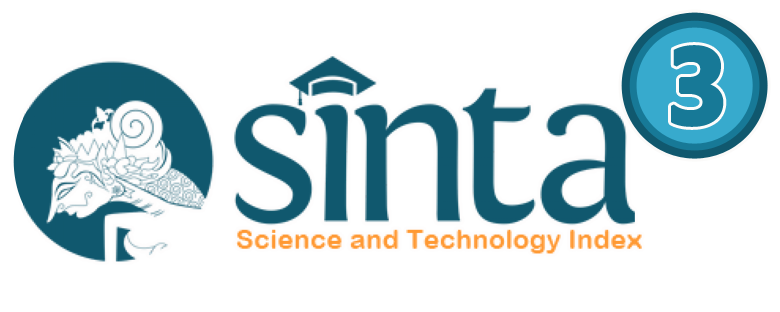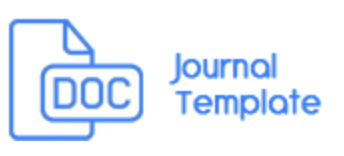Examining The Linkage Between Work-Life Balance and Psychological Well-Being Among Employees
DOI:
https://doi.org/10.18326/ijip.v7i1.4412Keywords:
Employees, Psychological well-being, Work-life balanceAbstract
The main focus of this study is to delve into the connection between psychological well-being and work-life balance among employees at PT. Asia Paramita Indah Medan. A purposive sampling technique was used to select 95 employees aged 20-60 years as participants. Data was collected using a psychological well-being scale consisting of 48 items and a work-life balance scale with 40 items. Data analysis was performed using SPSS 23. Normality and linearity tests were run to ensure the validity of the results. In order to examine the relationship between psychological well-being and work-life balance, the data collected was analyzed with Pearson Correlation. Results showed a negative correlation with value -0.446, indicating an inverse connection between psychological well-being and work-life balance among employees. The effective contribution was 19.9%, suggesting that additional variables not considered in this study may impact the remaining percentage, which provides a perspective for further studies.
References
Runtu, R. J. Pio, and S. Asaloei, “Pengaruh Lingkungan Kerja dan Work Life Balance terhadap Kepuasan Kerja pada Kantor Pos Cabang Utama Manado,” Productivity, vol. 3, no. 4, pp. 378–383, 2022.
Dinata and N. Hermina, “Effect of work planning and supervision at workplace on employee effectiveness at Operational Bureau of PT BPR Kencana in Cimahi City,” J. Maksipreneur: Manaj., Koperasi, Dan Entrepreneurship, vol. 12, no. 2, p. 560, 2023, doi: 10.30588/jmp.v12i2.1257.
Dira, A. Kusniawaiti, and A. Muhidin, “Pengaruh Budaya Organisasi dan Teamwork terhadap Kinerja Pegawai,” Business Management and Entrepreneurship Journal, vol. 2, no. 2, 2020.
Cayrat and P. Boxall, “The roles of the HR function: A systematic review of tensions, continuity and change,” Human Resource Manag. Rev., vol. 33, no. 4, p. 100984, 2023, doi: 10.1016/j.hrmr.2023.100984
Jannah, I. Suryani, P. Manajemen, F. Ekon. dan Bisnis, and U. S. Kuala, “Pengaruh Work-Life Balance terhadap Kebahagiaan yang Dimediasi oleh Self-Esteem pada Karyawan Sektor Perbankan Kota Banda Aceh,” J. Manaj. Inovasi, vol. 1, no. 11, pp. 124–137, 2020, doi: 10.24815/jmi.v11i1.16224
Affia and O. P. Mulyana, “Determinasi Keterikatan Kerja pada Prajurit Militer: Kajian Literatur,” J. Psikol. Wijaya Putra (Psikowipa), vol. 5, no. 1, pp. 39–53, 2024, doi: 10.38156/psikowipa.v5i1.134
Wiechers, X. D. Lub, J. A.-M. Coyle-Shapiro, and S. ten Have, “Unraveling disruptions: How employees pick up signals of change,” Group Organ. Manag., vol. 49, no. 4, pp. 1045–1068, 2023, doi: 10.1177/10596011231172658
Yu, C.-Y. Wu, and W.-L. Kao, “Relationships among work-family conflict, psychological well-being, job satisfaction and life satisfaction of employees in the technology manufacturing industry,” in Proc. 13th IIAE Int. Conf. Ind. Appl. Eng., 2025, pp. 239–246, doi: 10.12792/iciae2025.040
Fusar-Poli, P., Salazar de Pablo, G., De Micheli, A., Nieman, D. H., Correll, C. U., Kessing, L. V., Pfennig, A., Bechdolf, A., Borgwardt, S., Arango, C., & van Amelsvoort, T, “What is good mental health? A scoping review,” Eur. Neuropsychopharmacol., vol. 31, pp. 33–46, 2020, doi: 10.1016/j.euroneuro.2019.12.105
Safitri, Cahya Milia Tirta, and Laelatul Anisah, “Kesejahteraan Psikologis Ditinjau dari Kecerdasan Emosional dan Worklife Balance pada Tenaga Kesehatan Wanita yang Menjalani Peran Ganda,” J. Prakarsa Paedagogia, vol. 5, no. 1, pp. 101–111, 2022, doi: 10.24176/jpp.v5i1.8587.
Prasad, K. D., Rao, M., Vaidya, R., Sriyogi, K., Singh, S., & Srinivas, V, “The relationship between work-life balance and psychological well-being: An empirical study of Metro Rail travelers working in the Information Technology Sector,” Front. Psychol., vol. 15, 2025, doi: 10.3389/fpsyg.2024.1472885.
Bhalla, V., & Tanwar, K, “Correlational study of work life balance, religiosity and psychological well-being in married and unmarried working women,” Correlational Study Work Life Balance Religiosity Psychol. Well-Being Married Unmarried Work. Women, vol. II, no. 1, 2024, doi: 10.62830/mmj1-2-11a
Cynthia, Cynthia, Fifanny Riadi, Francesca Francesca, Martatilar Ivosari, and Winida Marpaung, “Psychological Well-Being Ditinjau dari Gratitude pada Orangtua dari Anak Penyandang Talasemia di POPTI Bandung,” J. Penelit. Pendidik., Psikol. Dan Kesehat. (J-P3K), vol. 2, no. 1, pp. 1–6, 2021, doi: 10.51849/j-p3k.v2i1.67.
Z henjing, G., Chupradit, S., Ku, K. Y., Nassani, A. A., & Haffar, M, “Impact of employees’ workplace environment on employees’ performance: A multi-mediation model,” Front. Public Health, vol. 10, 2022, doi: 10.3389/fpubh.2022.890400.
Salam, M., & Ahmad, B, “Impact of workplace spirituality on employees job satisfaction and job performance: A double mediation of employees well-being and psychological empowerment,” NICE Res. J., vol. 16, no. 4, pp. 18–34, 2023, doi: 10.51239/nrjss.v16i4.433.
Sari, R. E., & Nugroho, A. D, “Psychological well-being and family supportive supervision behaviors with work life balance in working women,” J. Psikol. Teor. Dan Terap., vol. 15, no. 1, pp. 48–60, 2024, doi: 10.26740/jptt.v15n01.p48-60.
Bian, X., & Mohd Sukor, M. S, “The mediating effect of work-life balance on the relationship between work-family conflict and psychological well-being among Chinese working women,” Sci. Rep., vol. 14, no. 1, 2024, doi: 10.1038/s41598-024-79322-1
Sugiyono, Metode Penelitian Kuantitatif, Kualitatif, dan R&D, Bandung: Alfabeta, 2023.
Arikunto, Prosedur Penelitian: Suatu Pendekatan Praktik, Jakarta: Rineka Cipta, 2023.
Cash, P., Isaksson, O., Maier, A., & Summers, J, “Sampling in design research: Eight key considerations,” Des. Stud., vol. 78, p. 101077, 2022, doi: 10.1016/j.destud.2021.101077
Campbell, S., Greenwood, M., Prior, S., Shearer, T., Walkem, K., Young, S., Bywaters, D., & Walker, K, “Purposive sampling: Complex or simple? research case examples,” J. Res. Nurs., vol. 25, no. 8, pp. 652–661, 2020, doi: 10.1177/1744987120927206
Memon, M. A., Thurasamy, R., Ting, H., & Cheah, J.-H, “Purposive sampling: A review and Guidelines for Quantitative Research,” J. Appl. Struct. Equ. Model., vol. 9, no. 1, pp. 1–23, 2024, doi: 10.47263/jasem.9(1)01
Ghozali, Imam, Aplikasi Analisis Multivariate Dengan Program IBM SPSS 23, 8th ed., Semarang: Universitas Diponegoro, 2018
Azwar, Saifudin, Penyusunan Skala Psikologi, 3rd ed., Yogyakarta: Pustaka Belajar, 2023
Navianti, D. R., Dewi, P. A., & Ryanto, S. S, “Identification of loading and unlocking process time at Denpasar Goods Terminal,” J. Tek. Transp. Dan Logistik, vol. 4, no. 1, pp. 57–66, 2023, doi: 10.52920/jttl.v4i1.127.
Esterina, Meriam, Mergana Septika Silvi, and Desy Rahmawati. “Effect of Perceived Career Development and Work-Life Balance to Psychological Well-Being of Lecturer,” vol. 34, 2020.
Downloads
Published
Issue
Section
License
Copyright (c) 2025 IJIP : Indonesian Journal of Islamic Psychology

This work is licensed under a Creative Commons Attribution-ShareAlike 4.0 International License.

 Indonesian Journal of Islamic Psycology is licensed under a
Indonesian Journal of Islamic Psycology is licensed under a 


